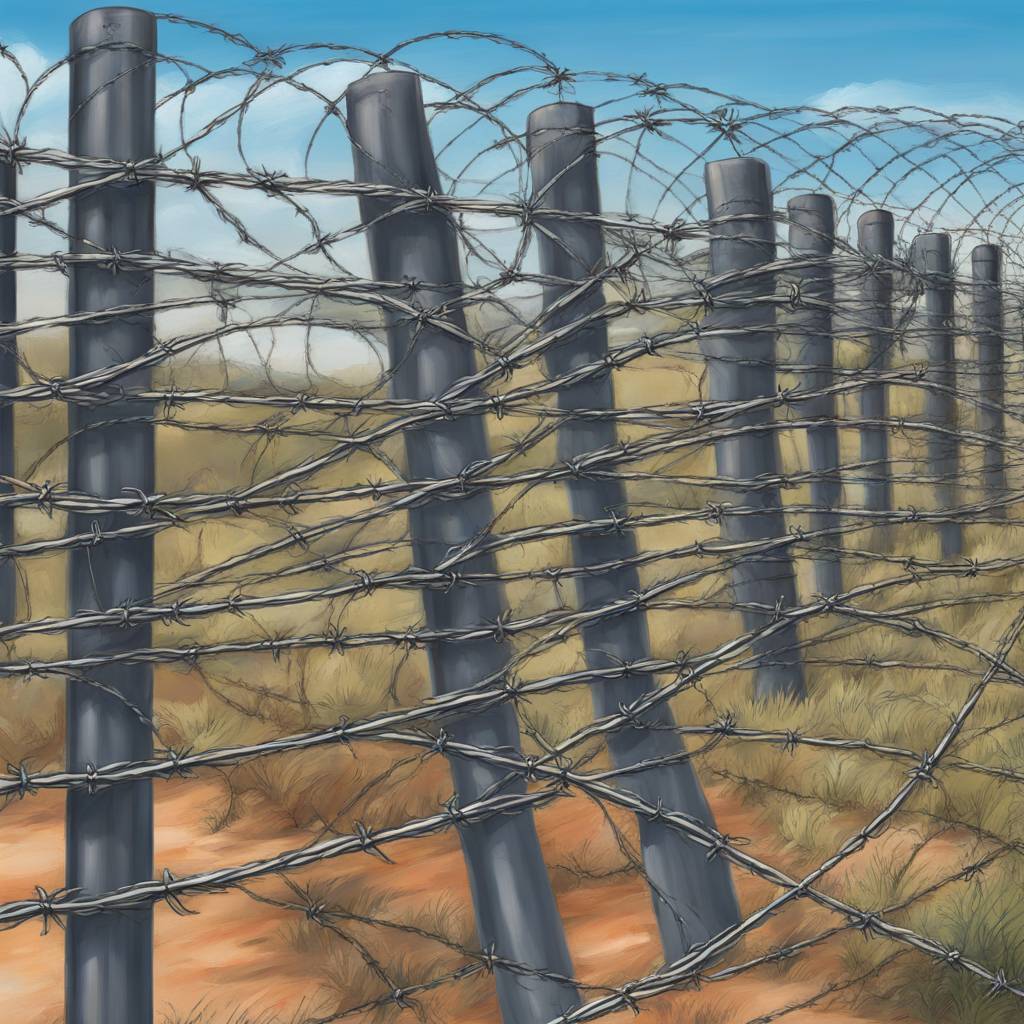Texas Governor Greg Abbott installed new razor wire at the U.S-Mexico border in response to an incident in El Paso where a large group of migrants breached concertina wire fencing and overwhelmed the National Guard. On Thursday, Texas National Guard members were seen trying to hold back the group of migrants as they breached the fencing. This surge of migrants breached Texas National Guard concertina wire barricades located between the Rio Grande and the border wall. In response, Abbott announced the addition of more razor wire and National Guard soldiers in El Paso. Tensions between Texan authorities and the federal government over how to handle illegal migration across the southern border have escalated, with Abbott vowing to continue fighting for border security measures despite legal challenges.
The Supreme Court’s ruling of the temporary removal of razor wire along the southern border while litigation proceeds has sparked controversy. Abbott has claimed that his state is facing an “invasion” and has invoked its “constitutional authority to defend and protect itself.” The conflict between Texan authorities and the federal government over handling illegal migration has become more pronounced in recent months. The federal government has raised environmental and humanitarian concerns regarding the use of deterrent measures like razor wire and walls, which have resulted in injuries, drownings, and even deaths. Local doctors in El Paso have reported consistent and devastating injuries to lower extremities from migrant falls from tall border walls.
El Paso has been identified as a popular migrant destination, with Abbott and his supporters accused of seeking chaos at the border for political gain. David Stout, a county commissioner in El Paso, claims that Abbott and his allies want to create chaos at the border to fit their rhetoric about border security issues. Despite criticism, Abbott has continued to defend his decision to deploy deterrent measures, arguing that Texas has the authority to enforce border security measures on its border. The absence of razor wire and other deterrents is said to encourage migrants to make unsafe and illegal crossings, making the job of Texas border personnel more difficult.
The addition of razor wire at the border comes as crossings on the southwest land border in Texas totaled 68,260 in January, indicating a decrease from the previous month but still among the highest rates in the country. This has led state officials to take matters into their own hands in addressing illegal migration. In addition, the Supreme Court’s decision to allow Texas Senate Bill 4 to be enacted has further fueled the debate over border security measures. The legislation would give local and state law enforcement the power to arrest and deport migrants suspected of crossing into Texas illegally. Despite legal challenges, Abbott has remained steadfast in his commitment to securing the border and defending Texas’ property and constitutional authority in the face of the ongoing debate over immigration policies.
Overall, the installation of new razor wire at the U.S-Mexico border in response to the incident in El Paso reflects the ongoing tensions between Texan authorities and the federal government regarding the handling of illegal migration. Abbott’s decision to deploy deterrent measures and reinforce border barriers has been met with criticism and legal challenges, but he remains determined to defend Texas’ property and constitutional authority. The issue of border security and immigration policies continues to be a contentious topic, with both sides advocating for their respective positions on how best to address the challenges posed by illegal migration across the southern border.
Keep Reading
Subscribe to Updates
Get the latest creative news from FooBar about art, design and business.
© 2025 Globe Timeline. All Rights Reserved.


